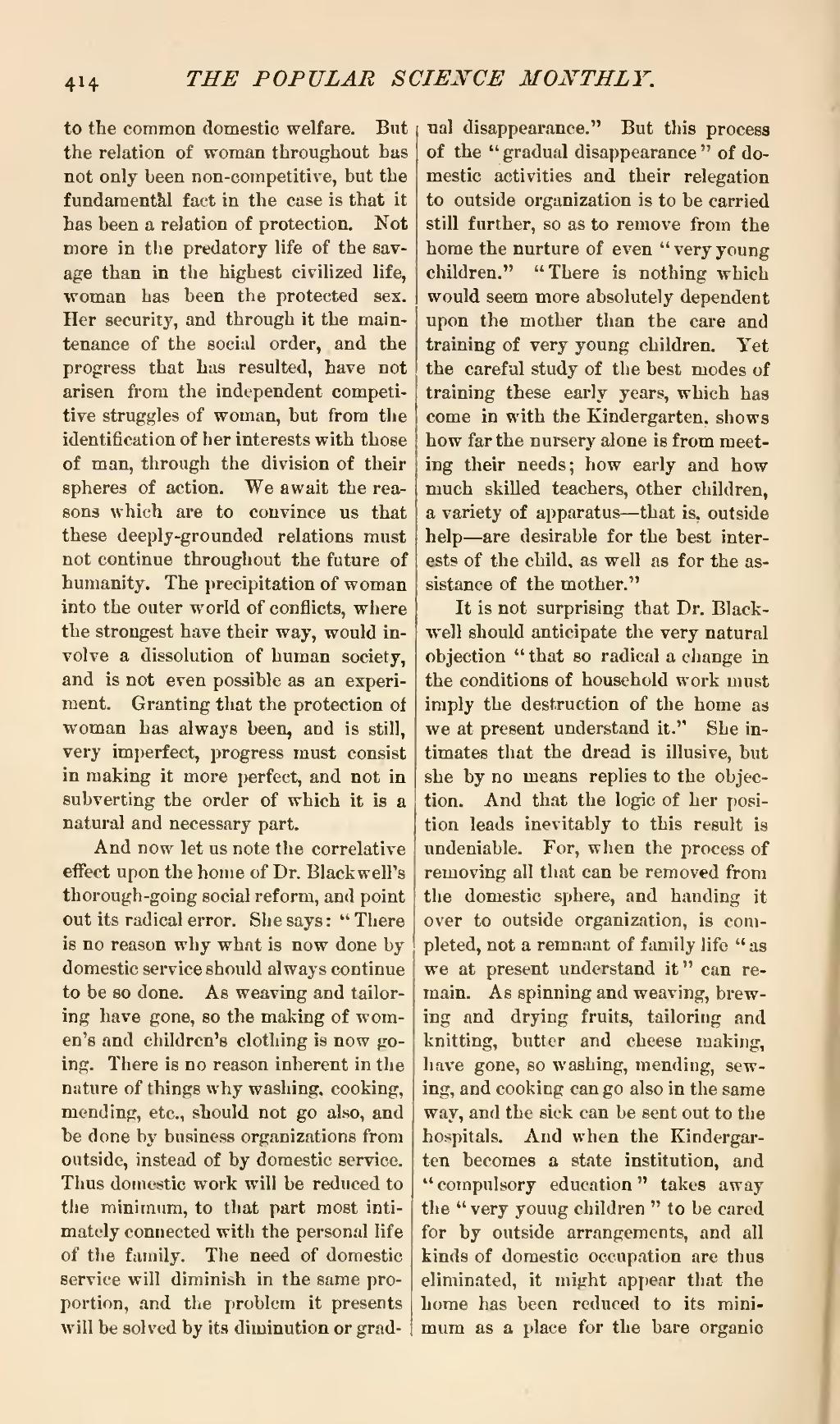to the common domestic welfare. But the relation of woman throughout has not only been non-competitive, but the fundamental fact in the case is that it has been a relation of protection. Not more in the predatory life of the savage than in the highest civilized life, woman has been the protected sex. Her security, and through it the maintenance of the social order, and the progress that has resulted, have not arisen from the independent competitive struggles of woman, but from the identification of her interests with those of man, through the division of their spheres of action. We await the reasons which are to convince us that these deeply-grounded relations must not continue throughout the future of humanity. The precipitation of woman into the outer world of conflicts, where the strongest have their way, would involve a dissolution of human society, and is not even possible as an experiment. Granting that the protection of woman has always been, and is still, very imperfect, progress must consist in making it more perfect, and not in subverting the order of which it is a natural and necessary part.
And now let us note the correlative effect upon the home of Dr. Blackwell's thorough-going social reform, and point out its radical error. She says: "There is no reason why what is now done by domestic service should always continue to be so done. As weaving and tailoring have gone, so the making of women's and children's clothing is now going. There is no reason inherent in the nature of things why washing, cooking, mending, etc., should not go also, and be done by business organizations from outside, instead of by domestic service. Thus domestic work will be reduced to the minimum, to that part most intimately connected with the personal life of the family. The need of domestic service will diminish in the same proportion, and the problem it presents will be solved by its diminution or gradual disappearance." But this process of the "gradual disappearance" of domestic activities and their relegation to outside organization is to be carried still further, so as to remove from the home the nurture of even "very young children." "There is nothing which would seem more absolutely dependent upon the mother than the care and training of very young children. Yet the careful study of the best modes of training these early years, which has come in with the Kindergarten, shows how far the nursery alone is from meeting their needs; how early and how much skilled teachers, other children, a variety of apparatus—that is, outside help—are desirable for the best interests of the child, as well as for the assistance of the mother."
It is not surprising that Dr. Blackwell should anticipate the very natural objection "that so radical a change in the conditions of household work must imply the destruction of the home as we at present understand it." She intimates that the dread is illusive, but she by no means replies to the objection. And that the logic of her position leads inevitably to this result is undeniable. For, when the process of removing all that can be removed from the domestic sphere, and handing it over to outside organization, is completed, not a remnant of family life "as we at present understand it" can remain. As spinning and weaving, brewing and drying fruits, tailoring and knitting, butter and cheese making, have gone, so washing, mending, sewing, and cooking can go also in the same way, and the sick can be sent out to the hospitals. And when the Kindergarten becomes a state institution, and "compulsory education" takes away the "very young children" to be cared for by outside arrangements, and all kinds of domestic occupation are thus eliminated, it might appear that the home has been reduced to its minimum as a place for the bare organic
